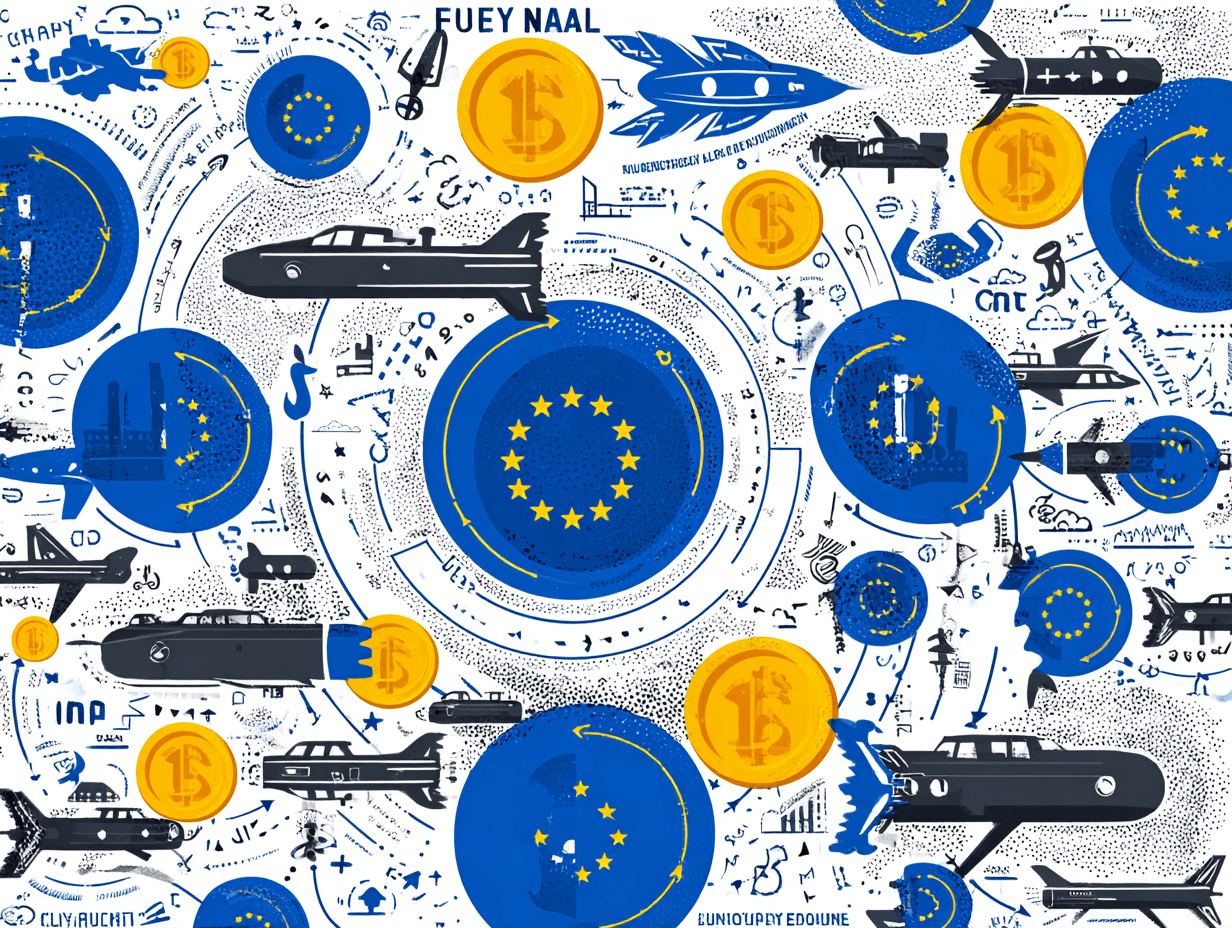Policy Brief n.46 - Strategic Readiness 2030: European Security through Strategic Thinking
Europe seeks to achieve security through greater strategic autonomy, but this requires the intellectual capacity to define objectives, align ends and means, anticipate adversaries, and adapt to uncertainty. A Policy Brief by Andrea Gilli, Mauro Gilli, and Niccolò Petrelli

Europe is rearming. Defense budgets are rising across the continent, topping over €300bn in 2024, while last July’s proposal for the EU’s 2028–2034 Multiannual Financial Framework (MFF) allocates an additional €131 billion to aerospace and defense — five times more than its predecessor. Yet resources are not enough.
Europe wants to achieve security through more strategic autonomy, but strategic autonomy requires more than weapons, factories, and supply chains: it requires a strategy, i.e. the intellectual capacity to define objectives, align ends and means, anticipate adversaries, and adapt to uncertainty.
Unlike the United States, which has cultivated, since 1945, an extensive and competitive ecosystem of universities, think tanks, research institutions, and defense agencies to integrate strategy with policy, Europe’s strategic thinking remains fragmented along national lines, underfunded, and weakly connected to decision-making.
Without change, the surge in European defense spending risks misallocating resources, duplicating efforts, and leaving critical gaps, while remaining structurally dependent on American guidance.
In this Policy Brief, we argue that Europe must invest in its cognitive capacity alongside its industrial capacity. Thus, after having launched Defense Readiness 2030, Europe should also adopt a Strategic Thinking Readiness 2030, with the following proposals:
- Launch Javier Solana Chairs, university Jean Monnet–like Chairs, embedding strategy in education through promotion of substantive knowledge (military technology, defense planning, intelligence studies) as well as wargames, and simulations to foster strategic understanding and cultivate early practice;
- Fund research excellence and talent via lean, competitive mechanisms that reward quality rather than bureaucracy or buildings;
- Launch European International and Military Affairs Fellowships, analogous to the U.S. Council on Foreign Relations, to bridge research and policy by embedding scholars in EU, NATO, and national ministries as well as military officers in European think tanks and universities;
- Fund the creation of two itinerant Offices of Net Assessment and two itinerant Offices of Technology Assessment-like centers to foster multidisciplinary research integrating political, economic, and technical expertise to ensure a plurality of views and methods, and to foster healthy competition;
- Fund the organization of continent-wide forecasting tournaments and wargame competitions among think tanks and universities to strengthen Europe’s strategic quotient.
These reforms require modest resources: dedicating just 0.1% of European countries’ annual defense spending to research and analysis, or around €300m per year, could radically transform EU strategic intellectual capacity. At the beginning, we recommend starting with lower resources to enable the stable and organic growth of Europe’s strategic ecosystem.
In order to foster a EU-wide strategic culture as well as prevent national dynamics from taking over funding, we recommend relying on a European Defense Fund-like mechanism, whereby national investments (0.5% of each country’s annual defense budget, for a €150m total) are matched by EU investments (another €150m).
The current MFF could already be used in this respect, and the Directorate-General for Defence Industry and Space (DG DEFIS) would be responsible for its implementation and control. The European External Action Service would be responsible for organizing the strategic directions, aided by an independent, rotational academic task force ensuring the quality and intellectual independence.
The overall rationale of Strategic Thinking Readiness 2030 is clear: more strategic autonomy cannot be achieved with money only, it also requires strategic capacity. Like a hedge fund that has secured its initial capital, now Europe has to invest in the underlying brainpower necessary to outperform competitors and adversaries. Otherwise, without enhancing its intellectual skillset to the level of its defense spending and policy ambitions, Europe cannot achieve its strategic goals and ultimately its security.
IEP@BU does not express opinions of its own. The opinions expressed in this publication are those of the authors. Any errors or omissions are the responsibility of the authors.


